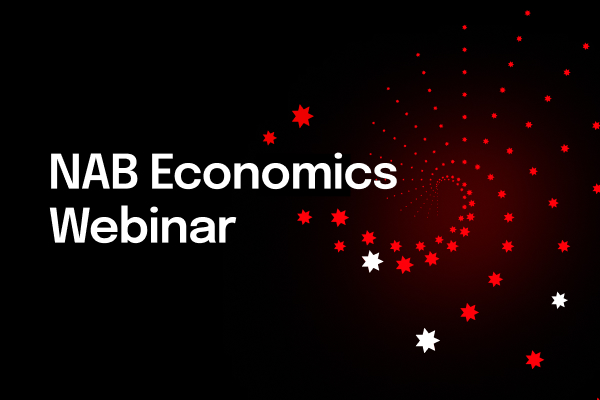Sally Auld, NAB Group Chief Economist, shares her insights on the economy


Webinar
Confidence slides but conditions still above average
Our podcast series to accompany the NAB Monthly Business Survey continues, giving you a 10 minute summary of the key survey developments this month. Listen now.
If listening on a mobile device, click listen in browser.
Both the economic outlook and activity softened in the November business survey, with the easing evident across most states and industries. Business confidence saw a second consecutive decline and is now at its lowest level since 2012 (outside of the COVID period). Unsurprisingly, a further increase in rates saw confidence in the key consumer-facing sectors – retail and recreation & personal services – fall further into negative territory. Business conditions also eased and are now at their lowest level since early in 2022. Though they remain above average, they are now well off their recent peak in mid-2022 and at a component level, are being supported by strong employment with both trading and profitability close to their long-run averages. Forward orders softened and taken together with confidence suggest that businesses expect that conditions will weaken further. However, capacity utilisation remains high and continues to be reflected in elevated price pressures with both input cost and output price inflation still elevated. Though conditions and confidence had been broadly stable through mid-2023, this month’s outcome suggests that growth in Q4 is unlikely to improve from the weak outcome in the Q3 national accounts, and while slower growth will eventually see an easing in inflation pressure, this will lag activity.
Business conditions fell 4pts to +9 index points, remaining above the long-run average. Trading conditions fell 6pts to +13 index points and profitability was down 6pts (unrounded) to +6 index points, while employment remained at +8 index points.
Business confidence fell 6pts to -9 index points with falls in most industries including a 16pt fall in retail. In trend terms, only transport & utilities and construction remain in positive territory. Across all states, trend confidence was negative across the board.
“Both confidence and conditions declined in the month and after a period of relative stability through mid-2023 appear to be softening further,” said NAB Chief Economist Alan Oster. “Outside of the pandemic period, business confidence is now its weakest since around 2012, when conditions were significantly weaker and growth in advanced economies was slowing.”
“For the consumer exposed sectors, you really need to go back to the GFC to see confidence this weak in retail and recreation & personal services.”
“That said, business conditions remain above average reflecting just how strong they were to begin with. We will be closely watching to see if the weakness in confidence is sustained and whether a trend emerges in conditions, but for now it points to ongoing soft growth in Q4.”
Leading indicators softened. Forward orders declined 3pts to -4 index points, led by falls in construction and recreation & personal services. Capacity utilisation edged lower but at 83.9% remains high.
“Forward orders softened alongside the slide in confidence so both of these measures in the survey point to ongoing weakness in the near term,” said NAB Chief Economist Alan Oster.
Price and cost growth accelerated in the month. Labour cost growth rose to 2.2% in quarterly equivalent terms, and purchase cost growth increased to 2.5%. Overall price growth rose to 1.2% with retail price growth up to 1.9%, while recreation & personal services prices were running at 1.0%.
“Price pressures for both inputs and outputs remain elevated and actually nudged higher in the month. The hope is that with activity slowing the easing in price pressures becomes more evident in early 2024” said NAB Chief Economist Alan Oster.
For more information, please see the NAB Monthly Business Survey (November 2023)
© National Australia Bank Limited. ABN 12 004 044 937 AFSL and Australian Credit Licence 230686.